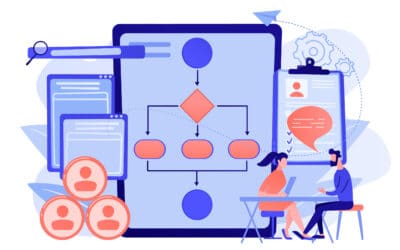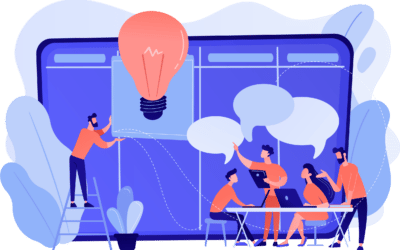A new year means new goals and directives that help your company perform better than ever. With the great resignation battering companies’ workforce across the nation, business leaders must take a proactive approach to retaining current employees and building a stronger, resilient workforce for the future. The company culture and employee experience are under the microscope as more and more professionals are being picky about where they work. Here are a few key HR trends for 2022 that will help ensure your company is meeting the demands of today’s workforce.
Are you battling the labor shortage? Read our blog about Hiring Workers.
Social Activism in the Workplace
The last two years have brought social activism to the forefront of the workplace. Employee wellbeing, social justice, climate change, racial justice, equality, and other hot button issues are no longer isolated as leaders are being held accountable for the organization’s response to and impact on society and the environment. Employees want to work for a company whose vision and values align with their own, and that means selecting employers who respond to these issues and drive positive impact for the greater good. This is no longer a nice-to-have quality but an expectation, and Leaders who shift to a people-first approach will be successful in addressing this trend.
Giving Your Employees A Voice, and Listening
Building a culture of trust and transparency requires a people-first approach, and that means actively listening to your workforce. According to Workforce Institute, 75% of employees don’t feel heard on important workplace topics like benefits, safety, and time off requests. A whopping 40% of employees don’t feel their feedback leads to actionable change. Companies can start with breaking down the communication barriers and building back the trust between employees and leadership. Create centralized communication channels that your employees know how to find use. Refrain from employee surveillance, as it hinders trust. Instead, focus on employee outcomes and successes, and share KPI’s, the data you’re tracking, and why you are tracking these specific metrics. This will encourage employees to have buy-in and a better understanding of what the business is trying to accomplish.
Self-Service Tools to Promote a Connected Workforce
A remote workforce creates many challenges for leadership, and building a culture around trust and clear communication is harder than ever with so many employees being out of sight. That’s why along with an effective communication channel, self-service tools will be a necessity for promoting a connected workforce. Employees should have access to update and change information, request time off, change passwords, access employee documents, and update tax information from their computer or mobile device. The right tools can help optimize processes for managers and administrators, while collecting data, insight, and feedback for your HR strategies.
Employee Development
People are looking for their ideal work environment or career with a purpose, and this means companies need to look beyond the role they’re hiring for. Employers will need to start hiring based on character; is this person reliable, willing to learn, motivated, and good fit for our culture? Companies who invest in people development, commit to teaching skills, and provide opportunities for career growth will be able to build their ideal workforce. Attracting and retaining top talent is easier when you give employees the tools to succeed.
Rapidly Changing Compliance and Regulations
The pandemic taught us that compliance and regulations can change rapidly, and companies need to be agile. Government legislation and local mandates continue to require more versatility from employers. Companies should take steps to implement data tracking, information security, and other policies before they are legally required to. Stay tuned in to industry patterns and legislation, be prepared to make changes, and implement a clear, effective plan for company communications to keep from hindering your culture by creating confusion and mistrust.
Human Resource Outsourcing
HR has become more than just payroll, schedules, and employee benefits. With so many items like Culture, Communication, Social Activism, and Compliance taking priority, HR teams are quickly becoming overwhelmed. In order to stay ahead, more companies will be turning to HRO to meet the day-to-day demands of operations. Outsourcing providers deliver more than just payroll and HR processes. HRIS technology, HCM software, compliance and regulatory monitoring, and best practices are all benefits of partnering with the right outsourcing provider. As experts in the industry, outsourcing providers can be trusted to handle these tasks so your team can focused on higher priority items, keeping you from falling behind, and ensuring a successful future for your company and your teams.





0 Comments